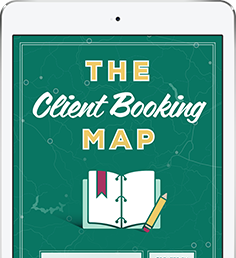
I still remember the first time I heard the word “blog” and took it seriously. The year was 2003 and I was sitting at my desk at my PR agency job and was researching media.
While blogs had been around for a while, they had been the domain of nerdy dudes in their parents’ basement and they were only then starting to become a little more mainstream.
I found a blog by a tech founder, whose name escapes me now, and I proceeded to fall down the rabbit hole. Something sparked in me that’s still burning 13 years later.
As a writer, a creative and a PR person who’d been relying on media to be publishers to do all the work for me, a blog was intoxicatingly appealing. (It took me 4 years after that to actually get up the moxie to start a blog, as it felt WAY too risky in my line of work to have myself out there in that way.)
Fast forward to today and the same feeling I experienced is what has people starting blogs every single day. Then, add a layer of fervent voices saying you can set up a blog and make money while you sleep/eat/paddleboard/play/frolic with unicorns, and the idea is irresistible for so, so many.
Which is why blogging in many ways is broken. And so many bloggers fail. The power of blogging has been built up into a fairy tale, when really, for a lot of people, it’s more like a horror movie.
Don’t get me wrong. I believe wholeheartedly in the power of blogging, but it’s not just about writing, hitting publish and then letting the magic happen.
The real magic of a blog starts with getting your head out of the clouds and understanding a few basic truths about how this blogging thing actually works.
Here are five surprising truths about your blog:
1. Are You a Blogger or a Business Owner?
Yes, you need to decide! There are two types of blogs out there. Bloggers who are blogging and will monetize through things like sponsored posts, ads and income directly tied to the blog posts themselves, and then there are those of us who have a blog as part of a business.
If you’re going for #1, you’re totally in the wrong place. Seriously. I have a grand total of zero knowledge about that type of blog, and in my experience, many people want this option but fail to understand what’s actually involved or how to get it.
As you likely guessed, I’m firmly in camp #2. Business owner who uses a blog to build their business and to support those overall goals.
Too many times, people start a blog with a blurred line between the two, and I honestly don’t believe that the two mix well. Be a blogger and then evolve into a business owner, but if you’re a business owner, don’t muddy the waters by selling sidebar ads to make $30 a month. You’ve got bigger fish to fry.
When you’re a business owner with a blog, your job is to be strategic about the content you create and not just be there to entertain the masses. Your blog should be producing ROI in terms of booked clients, sold programs or products and money rolling in the door. If not, you may need to have a big ol’ heart-to-heart with your blog to DTR (that’s hipster speak for define the relationship).
#2. Blogging Success Comes from a Having a Strategy
You know what separates those with moderate success from people who are superstars?
A strategy. And I don’t mean a tactic masquerading as a strategy like “post on blog 3 times a week”. I mean a big ass, badass strategy where every single piece of content you create has a real goal and it all ties together with the mother of all content strategies. And that content strategy is 1000% aligned with your business big picture.
Sounds pretty simple. Much harder in reality because if you’re running a business, your blog is on the to-do list as another item. Then it’s easy to settle for getting it done and not digging into how your blog fits together as part of a legit business strategy.
Like everything in business, success is by design, and it’s up to you to decide to design a strategy for your blog that drives results, and doesn’t just wait for happy accidents.
#3. Readers are Earned
Many a blogger has fallen victim to “special snowflake” syndrome where they believe that what they have to say is so revolutionary or innovative that people will pay attention. (Yes, guilty of this myself with my very first blog circa 2007.)
Unfortunately, that’s not how it happens. Mere mortals need to earn their readers one-by-one to build their blog. For some this will happen quickly, and for others it will take way longer than expected.
Which is why what you say matters, and it’s crucial that you define (and then refine) your voice. What can you say that’s different or offers a different perspective?
New blogs are started every single day. There’s no shortage of noise out there and you’re up against more distraction than ever, so it’s up to you to do the work not to be a “me too”.
#4. Consistency is Powerful
I talk about consistency a lot, but there’s a lot to be said for showing up week in, week out and doing what you say you’re going to do.
When I was first dating my husband, he won me over with his consistency. He called when he said he’d call, and it was, at least for me at that point in my life, remarkable.
Consistency may seem boring (especially as a creative) but as humans we’re hardwired for it. When there’s inconsistency, there’s dissonance and we want to correct it.
For you to build relationships with your readers and get them to trust you, consistency is a powerful tool. That trust leads to return visits, loyal readers, subscribers and even buyers. (Consistency just got a whole lot more sexy, right?)
#5. Writing is a Small Piece of the Blogging Puzzle
When I first started blogging, my entire routine went a little something like this: write post, publish post. Write post, publish post. So on and so on for days and months.
It was only once I realized that if I wanted to reach people, they needed to know my blog existed in the first place. That’s when I switched my approach. I wrote less and promoted my posts more. I spent time listening to my readers, responding to comments and getting to know what they really wanted. I invested time in creating a content strategy that was strategic and helped me meet specific goals I had for my classes, events and product sales.
That’s when shit got real. Everything changed. I went from blogging aimlessly to $34k that year. Then I was able to double that the following year to $68k, and then grow that revenue number to $86k and then $92k.
Over that time, I actually blogged less but spent way more time on everything else connected to the blog. So don’t let blogging scare you – I learned the hard way that the content was the content, but the rest was what made the blog succeed.

